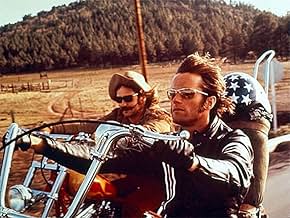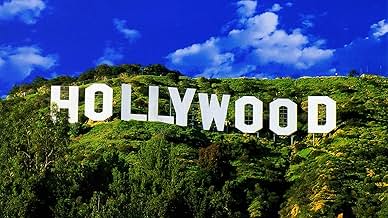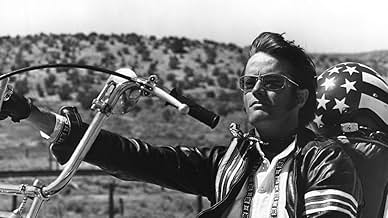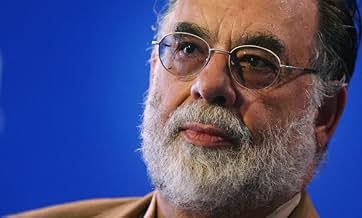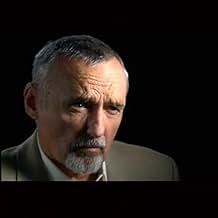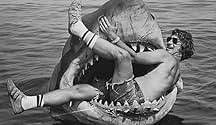Easy Riders, Raging Bulls: How the Sex, Drugs and Rock 'N' Roll Generation Saved Hollywood
IMDb RATING
7.5/10
3.2K
YOUR RATING
A look at 1970s Hollywood when it was known as New Hollywood, and the director was the star of the movie.A look at 1970s Hollywood when it was known as New Hollywood, and the director was the star of the movie.A look at 1970s Hollywood when it was known as New Hollywood, and the director was the star of the movie.
- Director
- Writers
- Stars
Sam Peckinpah
- Self
- (archive footage)
- Director
- Writers
- All cast & crew
- Production, box office & more at IMDbPro
Featured reviews
This docu makes the misguided error of comparing the careers of Hal Ashby and Steven Spielberg. More different film-makers there have never been. However, by sheer virtue of sharing artistic or commercial success in Hollywood in the same decade, these two anomylous inclusions are lumped in together. Peter Bogdanovich regales us simpletons with his self-encyclopedia, as if he were ever more than a journey-man director. It's intriguing to see the commercial success of The Exorcist and the critical success of Mean Streets sharing the same five minute discussion with various Hollywood talking heads all of whom are past their prime.
One of the rare gems of the film is the sequence recalling how Martin Scorcese, Paul Schrader, George Lucas, Spielberg and many other prominent male film-makers would hang out in the same beach houses in Malibu, but it's only ten minutes long. This is a film obsessed with the tangential perks of that divine spark that was the 70's renaissance of American movies. Presumably this film is based on a best-selling book of the same name, but all this film can sum up is that a bunch of cool movies came out in the 70's, and that, YES, the men who made those movies hung out from time to time. Honestly, you'd be better off just watching every film by the directors that this film interviews and save yourself the thankless task of listening to too many Hollywood has-beens pine for yesteryear. What really happened to these people's careers? Drugs for some, ego for others. Spotty at best, this film just isn't all it could be. 3/10
One of the rare gems of the film is the sequence recalling how Martin Scorcese, Paul Schrader, George Lucas, Spielberg and many other prominent male film-makers would hang out in the same beach houses in Malibu, but it's only ten minutes long. This is a film obsessed with the tangential perks of that divine spark that was the 70's renaissance of American movies. Presumably this film is based on a best-selling book of the same name, but all this film can sum up is that a bunch of cool movies came out in the 70's, and that, YES, the men who made those movies hung out from time to time. Honestly, you'd be better off just watching every film by the directors that this film interviews and save yourself the thankless task of listening to too many Hollywood has-beens pine for yesteryear. What really happened to these people's careers? Drugs for some, ego for others. Spotty at best, this film just isn't all it could be. 3/10
I read the book EASY RIDERS, RAGING BULLS by Peter Biskind and was amazed by it... If 'm honest I'm ashamed to say I rarely read for pleasure and it's something that I do meen to put right but EASY RIDERS, RAGING BULLS was an exception. Cliché's like "Couldn't put the book down" spring to mind!
Anyway this was a good, interesting documentary based on the points brought up in Biskind's book!
As a documentary it's very standard but the sheer subject matter makes it a very good 110 minutes of viewing.
Shame some of the big names didn't agree to appear on this film... it would have been so much better!
Anyway this was a good, interesting documentary based on the points brought up in Biskind's book!
As a documentary it's very standard but the sheer subject matter makes it a very good 110 minutes of viewing.
Shame some of the big names didn't agree to appear on this film... it would have been so much better!
A documentary like Easy Riders, Raging Bulls should be the kind of documentary I should like more. It is chock full of interviews and choice information about the time period (60's-70's) in American cinema that changed everything, for a lot better and some for not. But there are a couple of problems that become inherent. If you have read the book which spurred on the documentary by Peter Biskind (also author of Down and Dirty Pictures, a book about the 90's independent film movement), it's kind of like reading a masterpiece in the trashiest sense. There is a lot more in-depth information in the book, however much of it at the personal expense of the filmmakers, writers, producers, and others that are written about (a good deal with gossip, interestingly enough on the special features of the DVD some of the interviewees speak out against the falsities in the book, Paul Schrader being one of them). The other problem is that the same year this documentary was released on Spike TV (then later to DVD, which is where I saw it), there was the great documentary in the similar, more satisfying vein, A Decade Under the Influence. It might be unfair to compare the two, however if one were wanting in the first place to get a video history- by way of movie clips and interviews- about the years that changed movies a generation before, I would go for 'Decade' due to it's more obscure film clips, and a few more revealing and insightful interviews.
In fact, over half of the people in one documentary are also in the other, like Dennis Hopper, Paul Schrader, Peter Bogdanovich, Ellen Burstyn, Roger Corman, and Monte Hellman among others. It's not that this documentary in and of itself is not insubstantial. On a base level you get the lowdown, about how as Hollywood's studio system was on the decline, filmmakers who were coming up in Corman's enclave (Coppola, Hopper, Bogdanovich, even Scorsese), along with some other key outsiders, infused European ideals into their personal statements, making great art and some money in the process. On the level of just giving forth the information, it's not a bad telling of tales, and has a couple of interviews I wasn't expecting. But, again, my sense of proportion was out of place; I could sense that the doc, much like the book, was more interested in some of the more 'seedy' details (i.e. the stuff about Julia Phillips, or Bogdanovich, which is practically a quarter of the book) than in the actual cinema-contexts of the work. You also don't hear as much about the power of the influence on the filmmakers, which was an appeal of 'Decade'. It's not too tough a call to make, and if you've seen 'Decade' before 'Easy Riders Raging Bulls' you may agree. I liked it, but it's not saying much when the book, which itself was readable mostly for the sake of history (some worthwhile, some not), was better.
In fact, over half of the people in one documentary are also in the other, like Dennis Hopper, Paul Schrader, Peter Bogdanovich, Ellen Burstyn, Roger Corman, and Monte Hellman among others. It's not that this documentary in and of itself is not insubstantial. On a base level you get the lowdown, about how as Hollywood's studio system was on the decline, filmmakers who were coming up in Corman's enclave (Coppola, Hopper, Bogdanovich, even Scorsese), along with some other key outsiders, infused European ideals into their personal statements, making great art and some money in the process. On the level of just giving forth the information, it's not a bad telling of tales, and has a couple of interviews I wasn't expecting. But, again, my sense of proportion was out of place; I could sense that the doc, much like the book, was more interested in some of the more 'seedy' details (i.e. the stuff about Julia Phillips, or Bogdanovich, which is practically a quarter of the book) than in the actual cinema-contexts of the work. You also don't hear as much about the power of the influence on the filmmakers, which was an appeal of 'Decade'. It's not too tough a call to make, and if you've seen 'Decade' before 'Easy Riders Raging Bulls' you may agree. I liked it, but it's not saying much when the book, which itself was readable mostly for the sake of history (some worthwhile, some not), was better.
The last golden age of Hollywood film-making is captured in this two hour documentary, based on Peter Biskind's bestselling book of the same name. Director Kenneth Bowser does a commendable job of corralling many of the key names of the period in this light but passable introduction to the topic.
Bowser's treatise of 1970s Hollywood is essentially a potted history of the time many of the key developments and vital films that were made during this period are passed over or given nothing more than a cursory glance. The documentary suffers as a result and added to this, historical inaccuracies are also evident.
Film fans will most enjoy the scenes of archival footage a desperately nerdy George Lucas being introduced as Francis Ford Coppola's 'assistant'; Jack Nicholson, Bob Rafelson, Dennis Hopper and Peter Tork on the set of The Monkees vehicle 'Head'; and the piece de resistance, a home movie with Messrs Spielberg, Lucas, Milius, Coppola, de Palma, Schrader and Scorsese all in the same room. To be a fly on the wall at that party!
There are also current interviews with the likes of Peter Bogdanovich, Dennis Hopper, Peter Bart, John Milius, Michael Phillips, Paul Schrader, Peter Fonda, Albert S. Ruddy and many more figures of the time.
Bowser's documentary serves as a snapshot of the time Biskind's novel is a veritable diary. The book is packed with amazing stories that even a 13-part series couldn't document. Watch this documentary, get a taste of the time and then buy the book to immerse yourself in a fantastic period of American filmic creativity.
Bowser's treatise of 1970s Hollywood is essentially a potted history of the time many of the key developments and vital films that were made during this period are passed over or given nothing more than a cursory glance. The documentary suffers as a result and added to this, historical inaccuracies are also evident.
Film fans will most enjoy the scenes of archival footage a desperately nerdy George Lucas being introduced as Francis Ford Coppola's 'assistant'; Jack Nicholson, Bob Rafelson, Dennis Hopper and Peter Tork on the set of The Monkees vehicle 'Head'; and the piece de resistance, a home movie with Messrs Spielberg, Lucas, Milius, Coppola, de Palma, Schrader and Scorsese all in the same room. To be a fly on the wall at that party!
There are also current interviews with the likes of Peter Bogdanovich, Dennis Hopper, Peter Bart, John Milius, Michael Phillips, Paul Schrader, Peter Fonda, Albert S. Ruddy and many more figures of the time.
Bowser's documentary serves as a snapshot of the time Biskind's novel is a veritable diary. The book is packed with amazing stories that even a 13-part series couldn't document. Watch this documentary, get a taste of the time and then buy the book to immerse yourself in a fantastic period of American filmic creativity.
"Easy Riders, Raging Bulls" is an orgy for movie lovers. How can anyone who loves film not be in heaven at the constant parade of landmark films and key industry figures that charges across the screen in this fast-paced documentary? If you've read the book, the movie will feel cursory, and one will find himself wishing for more detail, more insider stories. There are curious omissions here, and wonders if Bowser structured his content based on who he could get to agree to interviews. Altman is hardly mentioned, Scorsese (who shows up everywhere talking about movies) is not interviewed, and Kubrick isn't mentioned at all (save for one shot of the "2001" poster). Still, what's there is great, and if you're like me, you'll be left with a twinge of sadness that such a rich time in film artistry seems to be gone forever.
Grade: A-
Grade: A-
Did you know
- TriviaMany of the subjects profiled in author Peter Biskind's book, including directors Steven Spielberg, George Lucas, Robert Altman, and 'William Friedkin', declined interviews for the documentary.
- ConnectionsFeatures The Terror (1963)
Details
- Release date
- Countries of origin
- Language
- Also known as
- La generación que cambió Hollywood
- Production companies
- See more company credits at IMDbPro
- Runtime
- 1h 59m(119 min)
- Color
- Sound mix
- Aspect ratio
- 1.78 : 1
Contribute to this page
Suggest an edit or add missing content


